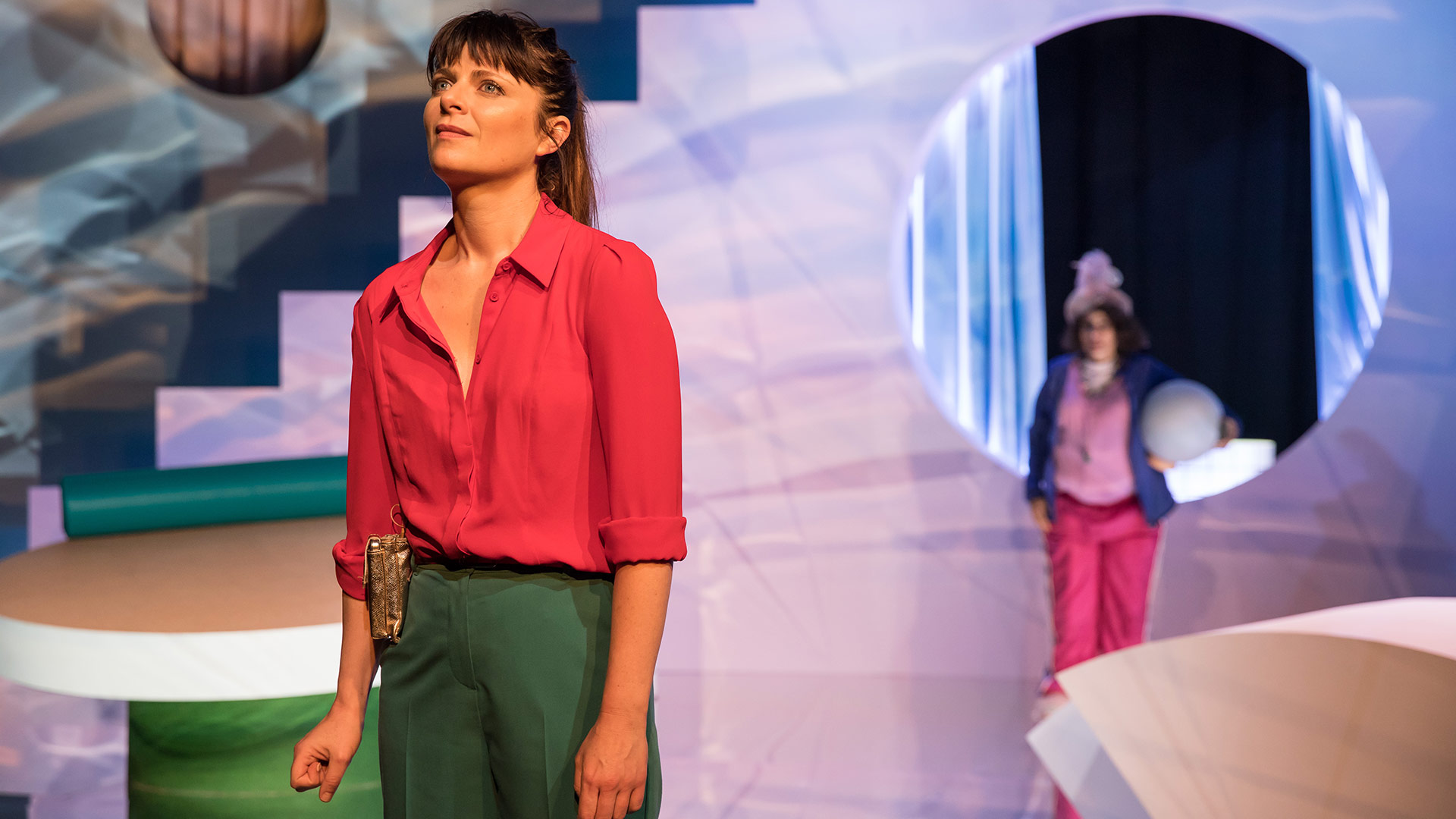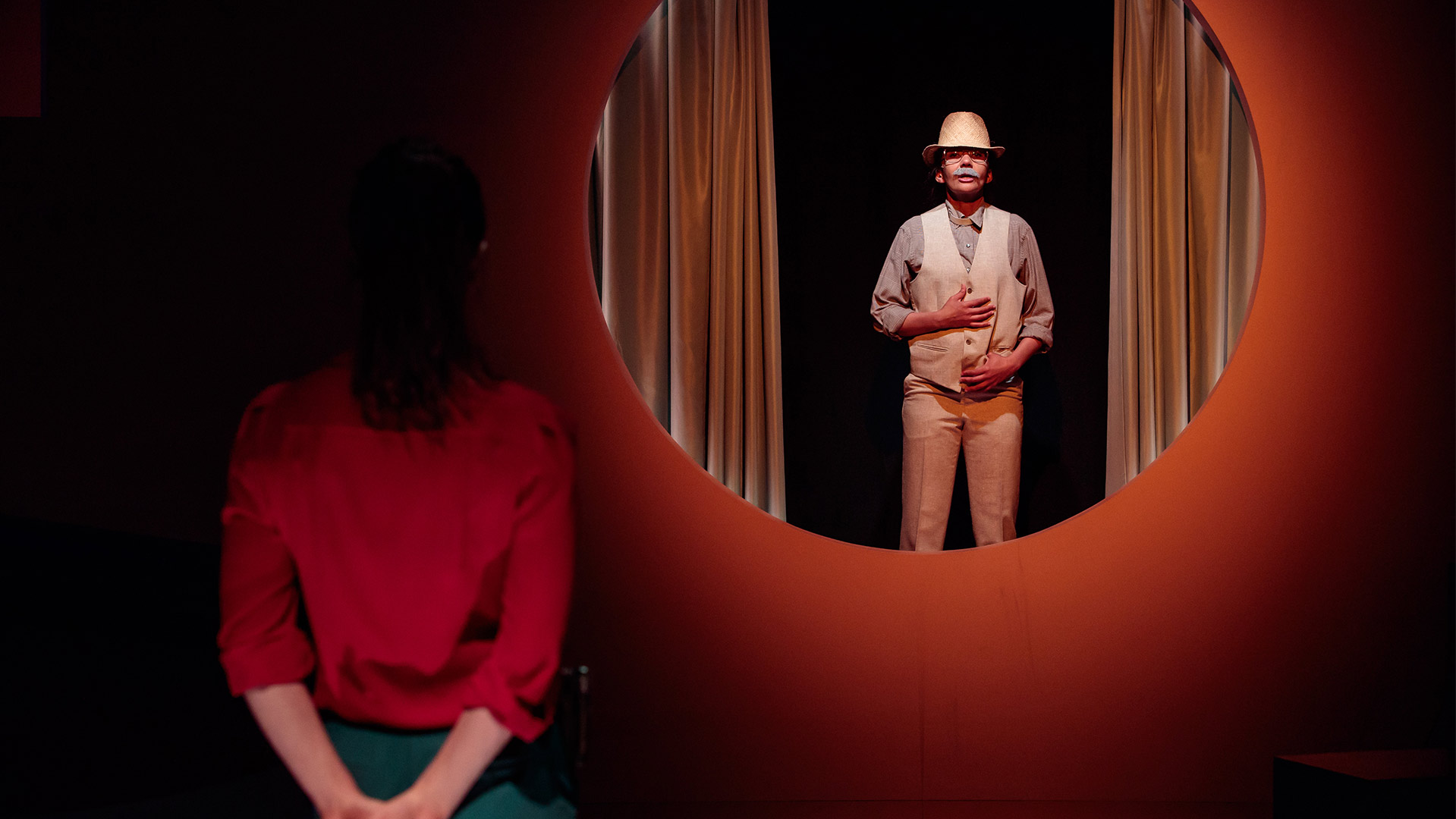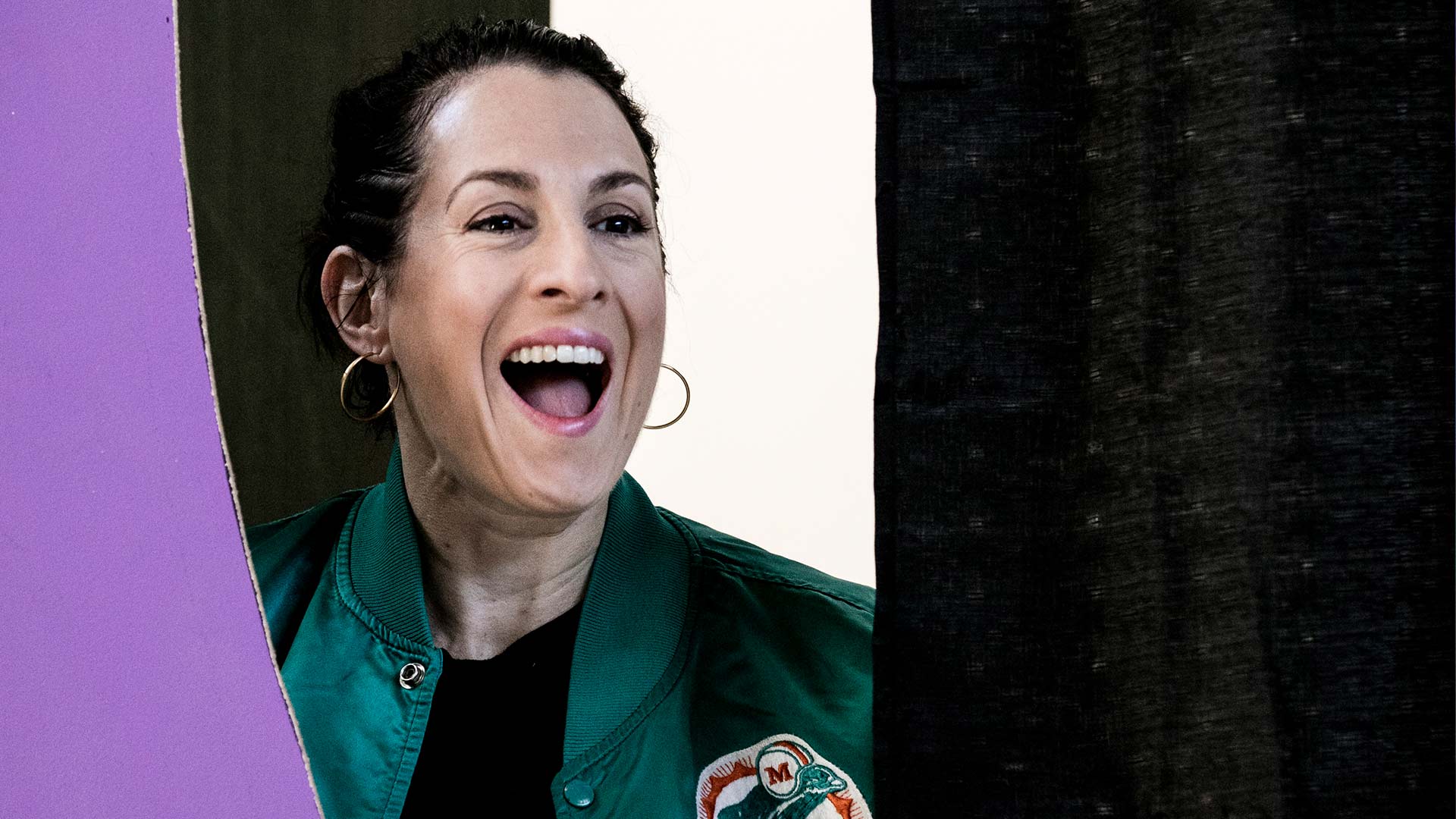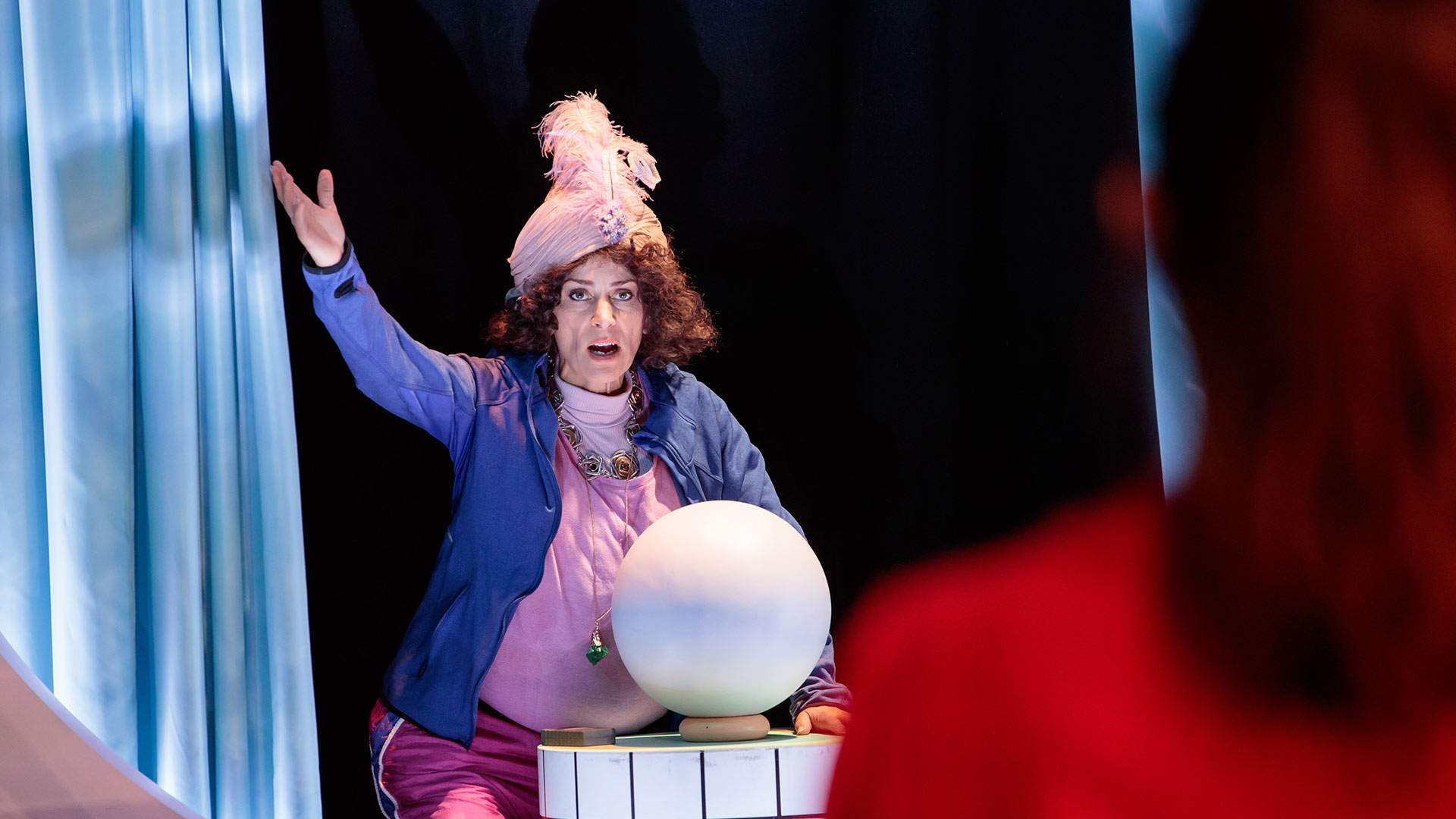An Interview with the Writer of Belvoir's Latest Play 'Atlantis'
Playwright Lally Katz wades through floodwaters, memories and a cast of uniquely weird individuals to return to her childhood home.
In partnership with
It seems entirely appropriate that within five minutes of my meeting Lally Katz, she is drenched. When I call her, it is pouring outside and she mentions she is walking to rehearsals. "It's okay, I've got a small umbre–" She is interrupted by what sounds like a burst of static, but is, in fact, a large amount of water being displaced. "Oh shit. Sorry. Yep. Yeah, that was actually a car just driving through a massive puddle. Now I am, I'm pretty wet." She jokes briefly about how this is a special sort of road rage that drivers get to practice on rainy days and continues on, her spirits, at least, seemingly undampened.
I say appropriate because I'm calling to talk to her about Atlantis, her latest work, which had its world premiere at Belvoir just this week. The play loosely revolves around Katz's return to her childhood home in Miami and her efforts to consolidate precious memories before rising seas claim the city forever. That at least one of us is sopping wet while we discuss this seems like providence rather than bad luck.

Lally's work has been a staple at Belvoir since 2011 when her play Neighbourhood Watch stormed that year's season. Loosely based on the friendship she shared with her elderly Hungarian neighbour, it took awards by the boatload and gave Belvoir-goers a taste for Katz's witty and surreal style. Since then, she has wrestled with bears and curses in her one-woman show Stories I Have to Tell You in Person, detailed the awkwardness of maintaining joint custody of a cat with one's ex in The Cat and gotten to the bottom of her father's karate obsession in Back at the Dojo. With Atlantis, she flirts yet again with autobiography. As usual, though, fantastical elements flit in and out of the memories, stretching the bounds of possibility to the infinite.
Although an accomplished chronicler of her own narrative, Katz's also seems to have an unerring, Louis Theroux-like ability to find garrulous oddballs busting to share an outlandish story. The idea for Atlantis came from a conversation she had with a cabbie in Mississippi. The cabbie told her that the mythical sunken city of Atlantis would come again and that we would all be called back there when it did. With this in mind, the cabbie was saving all of her money so she could move her family to Miami, where she hoped they would have a better chance of being taken first. "I thought 'Oh my God, she wants to drown her whole family'", says Katz. "And I don't think it's that uncommon a belief there. I think there's a network of Atlantis believers for sure."

With thoughts of sunken utopias ricocheting through her brain, Katz stumbled across an article suggesting that Miami, the city she'd spent a fair chunk of her childhood in, could be completely underwater by 2030. Before that, she had always resisted the urge to return to the city, wanting to safeguard her memories from the cynicism of adulthood. But the ticking clock made her think otherwise and she's since been back several times.
Katz was nine when her parents decided to emigrate from a small cul-de-sac in Miami to the suburbs of Canberra ("not as different as you might think", she points out). And while she was too young to immerse herself in Miami's vibrant culture, she has vivid memories of the wildness of the city's cocaine heydays. She speaks of growing up in a neighbourhood where everyone knew who the drug dealers were — "But they were nice, they were fine" — and of devastatingly glamorous women hitting each other with giant stiletto shoes. Katz is a naturally effusive conversationalist, but her tone changes as she remembers. She is full of nostalgia and wonder.

"You know when you go to a place as a kid and it's so magical, and then you go there as an adult and it's like 'well…' (she gives the verbal equivalent of a shrug). But when I went back to my old neighbourhood, I was so struck. It was like a tropical Smurf village and it did feel magical to me. That was a big surprise because I thought I was going to go back there and be disappointed."
The play grew out of these memories, from discussions she had with the city's residents, the Atlantis myth and from the looming possibility of Miami joining that fabled city at the bottom of the ocean. I ask whether knowing that she'll put such personal material on stage later makes it harder to enjoy these moments as they take place in reality. "I used to think there's something wrong with me, that I'm not living properly. Then in my mid-30s I came to pieces and thought this is just the way I live. It doesn't mean I'm not living, this is just how I am in the work."

Lally Katz.
By this stage, Lally is indoors and out of the rain. Although as she heads into rehearsals, she points out that a series of hurricanes is staged throughout Atlantis. A car splashing up some water now seems rather small by comparison.
Images: Brett Boardman.
Atlantis runs in Belvoir's Upstairs Theatre until 26 November. Book your tickets here.









